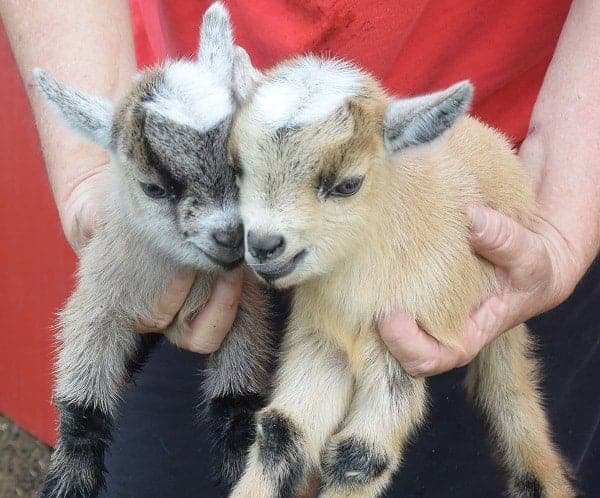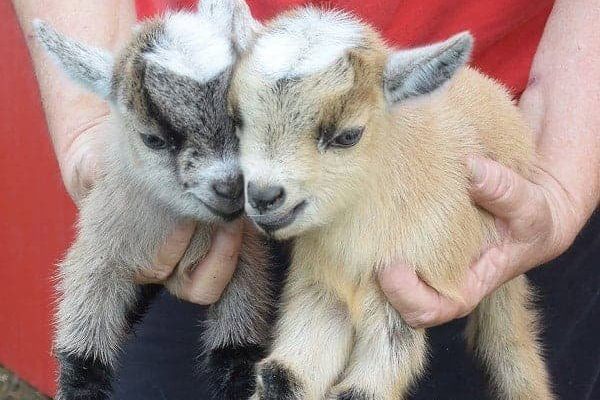
Let’s dive into the ins and outs of pygmy goats to help you decide if they belong in your life. Whether you’re looking to enhance your farm or seeking a lovable companion, I’ll walk you through everything you need to know about these delightful little creatures.
What Are Pygmy Goats?
Pygmy goats are a breed of miniature goats that originated from West Africa. They were bred for their compact size and friendly nature, making them ideal for small farms and petting zoos. These goats typically weigh between 50 and 75 pounds and stand about 16 to 23 inches tall at the shoulder. They come in a variety of colors, with some even showcasing unique patterns that add to their charm.
Here’s the thing: pygmy goats are not only cute; they’re also intelligent and inquisitive. They have a knack for getting into mischief, so be prepared for some entertaining antics! Because they’re social animals, they thrive in the company of others, and they can become quite attached to their human companions.
In a nutshell, if you’re thinking about bringing a pygmy goat into your life, you’re considering more than just a pet—you’re inviting a little bundle of joy into your home.
Space Requirements for Pygmy Goats
Before you jump in, it’s important to think about the space needed for pygmy goats. Ideally, they need plenty of room to roam and play. While they can thrive in small spaces, they require at least 200 square feet per goat. This can include a grassy area for grazing, as well as some shaded spots to cool down.
You might be wondering how they handle cold or hot weather. Pygmy goats are surprisingly resilient. They adapt well to different climates, but they do need proper shelter to protect them from extreme conditions. A simple barn or shed can work well, as long as it’s dry, draft-free, and has good ventilation.
To keep them healthy and happy, make sure they have access to fresh water, hay, and pasture. When given enough space, pygmy goats can flourish, bringing joy and laughter to your home.
Feeding Your Pygmy Goat
Feeding pygmy goats can seem daunting, but it’s pretty straightforward once you get the hang of it. Their diet mainly consists of hay, pasture, and specially formulated goat feed. Here’s a simple breakdown:
- Hay: This should be high-quality hay, like timothy or alfalfa. Always ensure it’s free from mold and dust.
- Pasture: Allow them to graze on fresh grass. This helps maintain a balanced diet and prevents boredom.
- Goat Feed: Look for a feed specifically designed for goats. This will provide essential vitamins and minerals.
Also, remember that pygmy goats have a natural tendency to overeat. It’s essential to monitor their portions to avoid obesity, which can lead to health problems. A healthy goat is a happy goat!
Social Needs and Companionship
Pygmy goats are inherently social animals, which means they don’t like being alone. If you’re considering getting one, think about welcoming at least two into your home. These little guys love to interact with each other, and their playful relationship can be super entertaining to watch.
Imagine this: You’re relaxing in your backyard, and two pygmy goats are playfully butting heads, chasing each other around, or simply lounging together. It’s a heartwarming scene that’s hard to resist!
If you can’t get a second goat, be sure to spend plenty of time with your pygmy goat. They thrive on human interaction and affection. With the right companionship—be it human or goat—they can lead happy, fulfilling lives.
Choosing Between Farm or Pet Use
Now that you know the basic needs of pygmy goats, consider how you plan to use them. Are you looking for pets that provide joy and companionship, or do you want them for agricultural purposes, like milk production or land maintenance?
For many, pygmy goats make wonderful pets. Their playful nature and friendly disposition can bring a unique joy to your days. However, if you’re on a farm, they can also serve as excellent land clearers, helping to maintain overgrown areas. Their playful energy can turn a mundane chore into something fun!
Ultimately, the choice hinges on your lifestyle and how much time you can dedicate to these delightful creatures.
Pygmy Goat Health and Care
Caring for pygmy goats isn’t just about feeding and space; it also involves regular health check-ups. Like any animal, they can be prone to certain health issues, including:
- Hoof Care: Regular hoof trimming is essential to prevent overgrowth and infections.
- Vaccinations: Consult with a veterinarian to establish a vaccination schedule for your goats.
- Parasite Control: Regular deworming is important to keep them healthy.
Establishing a routine for care will go a long way in maintaining their well-being. Just like us, they need regular check-ups to stay healthy, so don’t skip those vet visits!
Deciding if a pygmy goat is right for your farm or as a pet requires some careful thought. They are incredibly charming and can bring a lot of joy, but they also need proper care, companionship, and space.
If you’re ready to embrace the energy and personality of these little goats, you’re likely to find them as rewarding companions. However, if you aren’t prepared to meet their needs, it might be wise to consider other pets.
Pygmy goats can enhance your life in so many ways—but only if you’re ready to give them the love and care they deserve.

